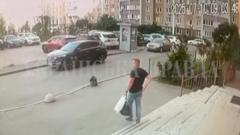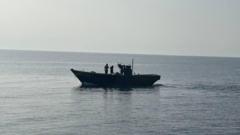The retrial of Kim Jae-gyu, the man who assassinated President Park Chung-hee in 1979, raises complex questions about legacy, democracy, and the motivations behind his actions. A divided public faces the challenge of reconciling historical narratives with modern political realities.
Revisiting the Past: The Retrial of Kim Jae-gyu and the Assassination of Park Chung-hee

Revisiting the Past: The Retrial of Kim Jae-gyu and the Assassination of Park Chung-hee
A historical examination of the court's retrial of Kim Jae-gyu, the assassin of South Korea's longest-serving president, ignites a debate over patriotism and treachery.
The echoes of a fateful night in 1979 reverberate through South Korea as the retrial of Kim Jae-gyu unfolds in the Seoul High Court. Kim, once the head of the Korea Central Intelligence Agency (KCIA), became notorious for assassinating President Park Chung-hee, a tyrant whose rule lasted 18 years, sparking a national dialogue that continues to captivate and polarize.
Yoo Seok-sul recalls the night of October 26, a moment marked by two gunshots that would have far-reaching consequences. As a security guard at the "safe house" where Park entertained his inner circle, Yoo describes the chaos that followed the shots. "I didn’t even know it was the president," he said, echoing a sentiment shared by a country grappling with the implications of the assassination.
Now, after 46 years, the court is examining whether Kim's actions constituted treason or were a necessary step toward democratization. He shot Park, a former friend, amidst increasing tension in the government, arguing he sought to prevent violent oppression. For many, he is either a committed patriot or a power-hungry murderer.
As memories of Park’s oppressive regime grow mixed with nostalgia for his developmental policies, Kim's family pushes for a revised narrative. They argue that the initial military trial was unjust, influenced by a power-hungry junta that usurped the government in the aftermath of the assassination. The younger generation finds it difficult to reconcile the economic growth during Park's rule with the human rights violations that marked it.
The current retrial raises significant questions about authority, legitimacy, and public memory. Kim’s sister asserts her brother's integrity, drawing attention to the brutality surrounding Park's regime and its suppression of dissent. “He didn’t kill for gain,” she maintains, as she fights for justice and re-examination of the past while the country faces fresh trials, including that of impeached President Yoon Suk Yeol, who has drawn comparisons to Park's dictatorial governance.
The testimonies from the defense illustrate the tumultuous political environment of 1979, marked by backdoor deals and swift arrests. Claims of torture and coerced confessions emerge, challenging the legitimacy of the original convictions. His actions, whether seen as those of an impulsive ally seeking revenge or a revolutionary with noble intentions, remain fraught with disagreement.
The retrial also serves as an opportunity for South Koreans to reflect on their current democracy, which has seen its own unsettling moments. As the history of Kim and Park is revisited in the courtroom, it highlights a broader struggle to understand the legacy of authoritarian rule in shaping the country’s trajectory and identity.
In this period of scrutiny and reflection, Kim's fate symbolizes the struggles of right and wrong, revolution and tyranny, alongside an evolving national consciousness striving for a more nuanced understanding of its past. The question remains whether historical reinterpretation can indeed offer healing or merely provoke further division.





















